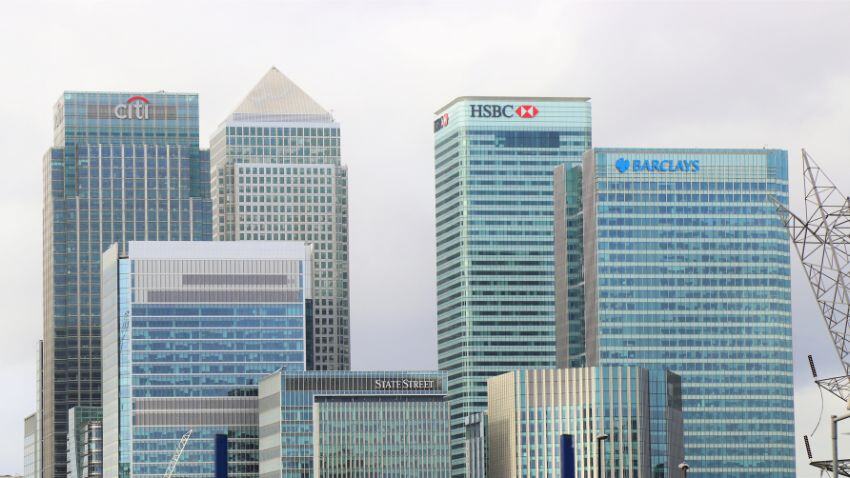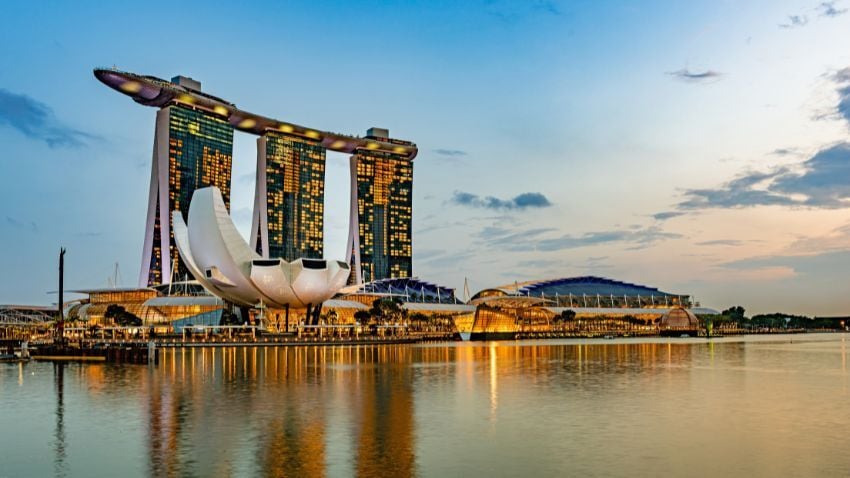How Safe Is Japan?
The word "Japan" brings to mind many things: high-tech, sushi, anime, samurai, and cherry blossoms. It is one of the most intriguing countries in...

5 min read
The UK might not be the first country that comes to your mind when you want to pay no taxes—and for good reason.
For decades, a special tax regime called the “Non-Domiciled” (Non-Dom for short) attracted high-net-worth individuals from all over the world, offering benefits like tax-free foreign-sourced income, as long as it wasn’t remitted to the UK.
While some, like the prime minister’s wife, have taken advantage of this, the non-dom status might be risky and not a sustainable option for those seeking tax relief. Europe is known for its high taxes, and relying on special tax regimes like the Non-Dom status can end up being a temporary fix filled with uncertainty.
Now, those clouds have turned into a full-blown storm. On April 6, 2025, the UK abolished the Non-Dom regime, replacing it with a residence-based system offering far fewer benefits, and for a much shorter duration.
In this article, we’ll explore what the UK’s Non-Dom regime used to offer, what it has now become, and why you should consider more reliable alternatives for your Plan-B, which you can learn about on our free special report, “Plan-B Residencies and Instant Citizenships.”

By keeping their income abroad, those with Non-Dom status could benefit from more favourable jurisdictions for real estate, banking, and business activities
In the UK and other countries like Ireland, “Non-Dom” status—short for Non-Domiciled status—is a special category for residents with a home or “domicile” outside the country.
As a Non-Dom, you get favourable treatment on your foreign income and gains, excluding them from UK taxes if they are not remitted to the country. In other words, Non-Doms can live in the UK and only pay taxes on UK-sourced income, while offshore income remains tax-free as long as it is kept overseas. That ended on April 6, 2025, with the regime's abolition.
To qualify for the old Non-Dom status, you had to be deemed Non-Domiciled—a complex legal concept often linked to your father's domicile at birth, not merely your passport or citizenship. This allowed you to access the remittance basis of taxation, where foreign income was only taxed if brought into the UK. That framework is now obsolete.
Previously, the most important tax benefits included:
Exemption from Foreign Income Tax: Non-Doms were exempt from paying UK tax on their foreign income, provided it was not brought into the UK. Whether foreign investments, property rentals or business profits, as long as they were not transferred to the UK, they remain outside the scope of UK taxation;
Capital Gains Tax Relief: Foreign capital gains were exempt from UK taxation if they remained offshore. This has benefited expats with substantial foreign investments or those who frequently buy and sell assets abroad;
Inheritance Tax (IHT) Exemption: Non-Doms were only liable for UK inheritance tax on their UK assets. Foreign assets can be passed on to heirs without incurring UK IHT, which can be a considerable advantage for estate planning.
However, these advantages were abolished in 2025.
%20regime%20will%20be%20introduced%2c%20a%20significant%20change%20that%20will%20directly%20impact%20how%20non-doms%20manage%20their%20international%20finances.jpg?width=850&height=478&name=Starting%20April%206%2c%202025%2c%20a%20new%20four-year%20Foreign%20Income%20and%20Gains%20(FIG)%20regime%20will%20be%20introduced%2c%20a%20significant%20change%20that%20will%20directly%20impact%20how%20non-doms%20manage%20their%20international%20finances.jpg)
In April 6, 2025, the new four-year Foreign Income and Gains (FIG) was introduced, bringing significant changes to the Non-Dom status and impacting how non-doms manage their international finances
As of April 6, 2025, the UK replaced the Non-Dom system with a new residence-based framework, the Foreign Income and Gains (FIG) regime, which offers limited benefits for a much shorter period.
Applies to individuals who become UK tax residents after being non-resident for at least 10 consecutive tax years.
Offers a 4-year tax holiday on foreign income and capital gains.
During this 4-year window:
Foreign income and gains are exempt from UK tax.
Funds can be remitted into the UK without extra charges.
Trust distributions are tax-free.
After the 4 years, individuals become fully taxable on worldwide income and gains under the arising basis, like all regular UK tax residents.
Non-Doms moving from the remittance basis to the arising basis on 6 April 2025 and not eligible for the new 4-year FIG regime will:
50% Tax Reduction for One Year: Pay tax on 50% of their foreign income for the 2025-2026 tax year. This reduction does not apply to foreign chargeable gains;
Normal Taxation Post-2026: From the 2026-2027 tax year onwards, they will pay tax on all worldwide income.
The protection from taxation on future income and gains within trust structures was removed for all current Non-Doms and deemed domiciled individuals who do not qualify for the new 4-year FIG regime. From now:
All foreign income and gains in non-resident trusts are now taxable on the settlor or beneficiary;
Even pre-2025 gains in trusts may be taxed if matched to UK resident distributions.
The government also intends to transition from a domicile-based inheritance tax regime to a residence-based regime. This proposal will be subject to consultation.

I will never claim that a perfect place exists, but my clients and I seek promising options. Latin American countries like Panama and Paraguay offer great opportunities and are attractive alternatives
The UK’s Non-Dom regime used to offer significant advantages to those who earn money abroad, especially in the form of passive income—capital gains, royalties, rental income, and dividends. It motivated many wealthy individuals to establish tax residency in the UK while maintaining their permanent home elsewhere.
But those days are over. The Non-Dom regime was officially abolished on April 6, 2025, and replaced by the Foreign Income and Gains (FIG) regime—a short-term tax window that offers relief for only four years to new residents who meet strict criteria.
While the FIG regime provides some breathing room for newcomers, it is not a long-term solution. After four years, expats are fully exposed to the UK’s high-tax environment, with global income, capital gains, and potentially even worldwide estates subject to UK taxation. Trust protections have also been dismantled, and a residence-based inheritance tax regime is on the horizon.
In practical terms, this means that neither the Non-Dom status nor the new FIG regime offers a sustainable path forward for those looking to legally and efficiently minimize their tax obligations over the long term.
While the current UK government anticipates billions in revenue from these reforms, the reality is that wealthy individuals are choosing to leave rather than pay tax on their worldwide assets and income. And for anyone considering the UK as a hub for their global wealth strategy, the short-lived FIG regime is simply not enough.
If you stayed in the UK beyond the FIG window, you’d become a standard tax resident, paying among the highest income and inheritance taxes in the developed world, and living in a country increasingly burdened by inflation, regulatory creep, and declining safety. It’s a temporary patch, not a viable foundation.
I will never say there is a Shangri-La out there, but my clients and I prefer options in places like Latin America. If you are bold enough to search, you can find excellent tax benefits in this region.
While organizations like the EU are attacking citizenship-by-investment programs and golden visas, countries like Panama, Paraguay and Nicaragua offer a complete territorial tax system. Other countries like Chile or Uruguay offer a tax holiday period, helping expats reduce their tax liabilities.

Take advantage of the flag theory: establish your tax residence in Panama, open bank accounts in Belize, and store your gold in Switzerland. Choose the jurisdictions that best meet your needs and live more comfortably
The UK’s non-dom status was never a permanent solution, and the FIG regime is no exception. The rising global tax exposure, inheritance liabilities, and the end of trust protections make the UK an unattractive long-term choice for international wealth holders.
Choosing your tax residency is one of the most important parts of being an expat. However, your global strategy does not boil down to moving abroad and solely relying on your new country.
Instead, consider leveraging flag theory. Plant flags in every country that aligns with your goals. If you don't know where to start, take the first step by downloading our free special report on Plan-B Residencies & Instant Citizenships.
If you want the best intel from the expat world, including profitable offshore opportunities, little-known tax-saving strategies, and hard-won insights on immigration, passports, and Plan-B residencies, all delivered to your inbox every single week, then join our daily correspondence, EMS Pulse®. Currently enjoyed by over 84,000 expats and expat-hopefuls worldwide. Fill in the form below to join our newsletter free:

Written by Mikkel Thorup
Mikkel Thorup is the world’s most sought-after expat consultant. He focuses on helping high-net-worth private clients to legally mitigate tax liabilities, obtain a second residency and citizenship, and assemble a portfolio of foreign investments including international real estate, timber plantations, agricultural land and other hard-money tangible assets. Mikkel is the Founder and CEO at Expat Money®, a private consulting firm started in 2017. He hosts the popular weekly podcast, the Expat Money Show, and wrote the definitive #1-Best Selling book Expat Secrets - How To Pay Zero Taxes, Live Overseas And Make Giant Piles Of Money, and his second book: Expats Guide On Moving To Mexico.

The word "Japan" brings to mind many things: high-tech, sushi, anime, samurai, and cherry blossoms. It is one of the most intriguing countries in...

Singapore is often described as a city that works, and it totally deserves its reputation. This small island nation in Southeast Asia has built one...

Panama’s geographic size is modest, but its global relevance is not. The country connects two oceans and two continents, operates on a dollarized...